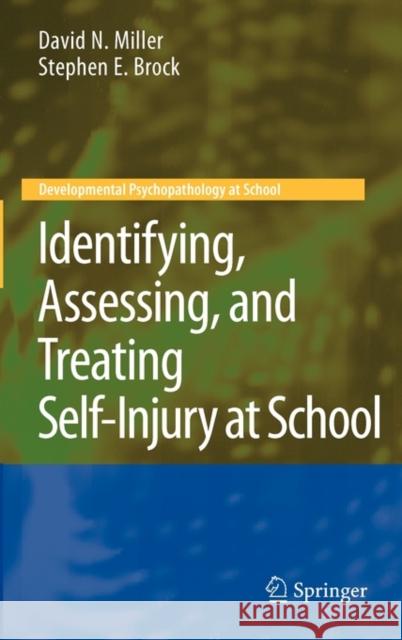Identifying, Assessing, and Treating Self-Injury at School » książka
Identifying, Assessing, and Treating Self-Injury at School
ISBN-13: 9781441960917 / Angielski / Twarda / 2010 / 138 str.
Identifying, Assessing, and Treating Self-Injury at School
ISBN-13: 9781441960917 / Angielski / Twarda / 2010 / 138 str.
(netto: 390,56 VAT: 5%)
Najniższa cena z 30 dni: 385,52
ok. 16-18 dni roboczych.
Darmowa dostawa!
Nonsuicidal self-injury (NSSI) among young people most notably in the form of forearm- or wrist-cutting occurs across cultural groups, social strata, and developmental stages, puzzling and repelling adults. Youth engaging in NSSI behaviors are at a higher risk for suicidality as well as other mental health and academic problems. And because NSSI is often first noticed in the school setting (as is the case with many children s disorders), school professionals are being encouraged to take a more proactive role in intervention.
The first book specifically geared toward education personnel, "Identifying, Assessing, and Treating Self-Injury at School" clearly defines NSSI, differentiating it from suicidal, borderline, and other behaviors and analyzing the psychological contexts in which it occurs. This school-based perspective gives readers a practical framework for earlier, more accurate diagnosis; relevant consulting with parents, teachers, and colleagues; and effective, science-based treatment.
Included in the coverage: an overview of causes of self-injury, current findings on prevalence and associated conditions, early screening guidelines, including risk factors and warning signs, the latest information on assessment issues and diagnostic methods, aseparate chapter on psychoeducational assessment and up-to-date research on interventions for NSSI.
"Identifying, Assessing, and Treating Self-Injury at School" offers a solid foundation for school psychologists and allied educational professionals to understand students with NSSI and address their complex needs."











